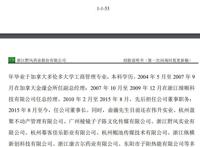子谦译文|创业教什么:六种主流创业理论的对比研究(44)
2023-06-03 来源:旧番剧
表3总结了上一节的研究成果,试图在概念层面上阐明所有被调查的创业方法的相似性、差异性、优势、劣势、重叠点和差距,这也是第一次在9个概念维度上比较这些创业方法。表3中的每个单元格都包含典型的说明性陈述,这些陈述要么在方法论中清晰地表述出来,要么是由本文作者推断出来。表3还显示了一些方法的概念上的差距,特别是在商业规划方面,强调需要改进的必要性。While some methods appear similar upon first glance, variations in the details are often relatively large. Whereas effectuation calls for entrepreneurs to manage uncertainty by taking action to create the future, in the lean startup methodology, entrepreneurs discover the future through testing carefully designed hypotheses. Effectuation further advises entrepreneurs to expand self-knowledge through introspection (Dew and Sarasvathy2010),in contrast to design thinking,in which entrepreneurs derive knowledge through observational studies of other people. While effectuation defines a redirection situation as an opportunity to “leverage contingencies,”the lean startup methodology frames redirection as an unfortunate but necessary “pivot”. In the lean startup methodology and in effectuation, continuous learning comes primarily from interactions with customers and stakeholders, respectively, whereas in design thinking, continuous learning comes primarily from testing prototypes on users. Effectuation describes the iterative process as revolving around stakeholder commitments, where as it erations in the lean start up methodo logy and design thinking have to do with building frugal prototypes. Effectuation is largely focused on value creation for oneself and the team, whereas the lean startup methodology and design thinking are focused on value creation for others (i.e., for customers and users).
猜你喜欢
动漫推荐
免责声明:动漫番剧数据来源网络!本站不收费,无vip,请勿上当!
www.jiufanju.com-旧番剧





















